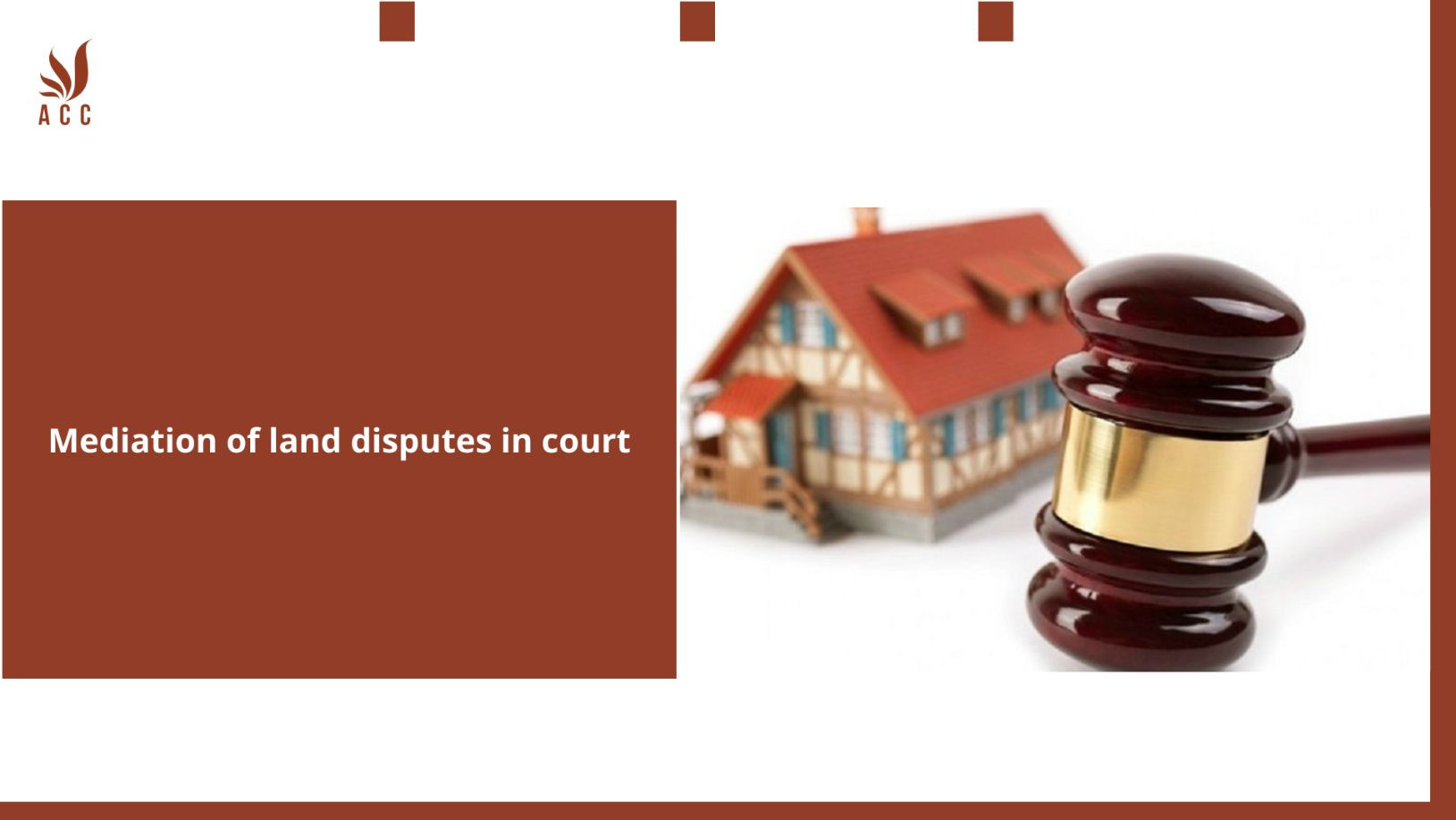Mediation of land disputes in court involves a structured and facilitated negotiation process aimed at helping parties involved in a land dispute reach a mutually acceptable resolution without the need for a formal trial. Here is an overview of the mediation process for land disputes within a court setting:

1. Selection of a Mediator:
The court typically appoints a qualified and neutral third party to serve as the mediator. This person should have expertise in land law and dispute resolution. Both parties may also have the option to mutually agree on a mediator.
2. Initial Meeting:
The mediator will meet with both parties separately to understand their perspectives, concerns, and goals. This initial meeting helps the mediator gain insight into the dispute and identify areas of potential agreement.
3. Setting Ground Rules:
The mediator establishes ground rules for the mediation process. This may include guidelines for respectful communication, confidentiality, and the role of the mediator in facilitating discussions.
4. Joint Sessions:
The parties, with the mediator's guidance, participate in joint sessions where they discuss the issues in dispute, exchange information, and explore possible solutions. The mediator helps foster open and constructive dialogue.
5. Private Caucuses:
If necessary, the mediator may hold private caucuses with each party to discuss sensitive issues or proposals privately. This can be a useful tool for bridging gaps in negotiation.
6. Identifying Interests and Concerns:
Throughout the mediation process, the mediator encourages the parties to identify their underlying interests and concerns. Understanding these factors can often lead to more creative and mutually beneficial solutions.
7. Generating Options:
The mediator facilitates the generation of potential solutions that address the parties' interests. These options can range from boundary adjustments, compensation, or other mutually agreed-upon resolutions.
8. Negotiation and Agreement:
The parties work together, with the mediator's assistance, to negotiate the terms of a settlement agreement. The agreement should outline the specifics of how the land dispute will be resolved, including any necessary actions and timelines.
9. When using ACC Law Firm's land-related services, entrepreneurs will receive
When using ACC Law Firm's land-related services, entrepreneurs will receive expert advice and assistance in navigating various legal aspects of land ownership and transactions. This includes guidance in property acquisitions, leases, zoning regulations, land use planning, and any other land-related legal matters. ACC Law Firm's team of experienced attorneys will provide personalized support to entrepreneurs, ensuring compliance with applicable laws and regulations, protecting property rights, and optimizing the value of their land investments.
10. Q&A
What is mediation in the context of land disputes in court?
Answer: Mediation is a form of alternative dispute resolution (ADR) used in court cases involving land disputes. It involves a neutral third-party mediator who helps the disputing parties reach a mutually acceptable agreement. Mediation aims to resolve the conflict without the need for a full trial, saving time and resources.
Who typically serves as a mediator in land dispute cases in court?
Answer: Mediators are often experienced professionals, such as attorneys, retired judges, or trained mediators with expertise in property law. They are neutral and do not represent either party, but instead facilitate communication and negotiation between the parties.
What are the benefits of using mediation for land disputes in court?
Answer: Mediation offers several benefits, including:
Cost savings: Mediation is often more cost-effective than a full court trial.
Faster resolution: Mediation can resolve disputes more quickly, reducing the time spent in court.
Confidentiality: Mediation proceedings are private, allowing for candid discussions.
Greater control: Parties have more control over the outcome and can craft creative solutions.
Preservation of relationships: Mediation can help maintain or rebuild relationships between the parties.
Is mediation mandatory for land disputes in court, or can parties choose to go to trial?
Answer: In some jurisdictions, mediation may be mandatory before proceeding to trial for certain types of land disputes. However, in many cases, parties have the option to choose mediation voluntarily. Courts often encourage mediation as it can be a more efficient and less adversarial way to resolve disputes. Whether mediation is mandatory or voluntary can depend on local court rules and the nature of the dispute.
Nội dung bài viết:






Bình luận